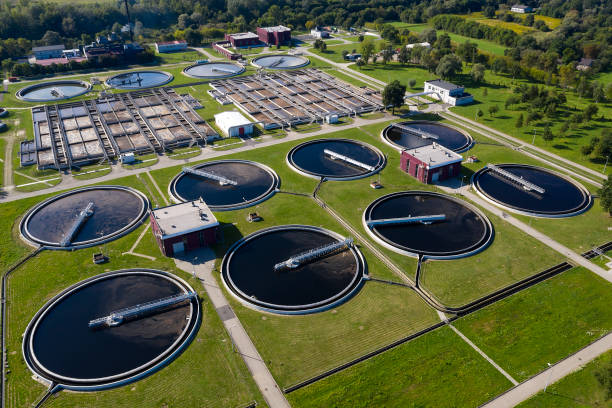What are basic industries? Everything to know about it

What are basic industries? At first glance, the term may seem like a simple one. But when you break it down, there are a lot of intricate details involved. In this blog post, we’re going to take a look at what a basic industry is and everything you need to know about them. From what they produce to the people who work in them, this article has everything you need to get a better understanding of basic industries. So read on and learn all you can!
What is an Industry?

Industries are businesses that produce goods and services for the market. There are different types of industries, including manufacturing, service, and agricultural. Each industry has its own unique set of challenges and opportunities.
What are basic industries? At first glance, the term may seem like a simple one. But when you break it down, there are a lot of intricate details involved. In this blog post, we’re going to take a look at what a basic industry is and everything you need to know about them. From what they produce to the people who work in them, this article has everything you need to get a better understanding of basic industries. So read on and learn all you can!
Manufacturing is the most common type of industry. Manufacturing companies use various processes to make products. They might use machines to create products or they might use people to do some of the work. Manufacturing can be very complex, so it’s important for manufacturers to have a good understanding of their equipment and the production process.
Service industries involve providing goods or services to other businesses or customers. Service businesses often need to have a lot of flexibility in their operations in order to meet the needs of their clients or customers. This flexibility can be difficult to achieve, but it’s worth it if it allows service businesses to stay competitive.
Agriculture is one of the oldest forms of industry. Farmers grow crops and raise animals in order to produce food for people. Agriculture is very important because it provides us with food and other materials necessary for our economy.
chicago truck accident lawyer chicagoaccidentattorney.net
Types of Industries

There are many different types of industries, each with its own set of benefits and drawbacks. Here’s a rundown of the most common types:
· Commercial enterprises: Commercial enterprises are businesses that sell products or services to other businesses or individuals. The main advantage of commercial enterprise is that they have a large customer base from which to draw revenue. On the downside, commercial enterprises typically require more capital than other types of businesses and may face higher startup costs.
What are basic industries? At first glance, the term may seem like a simple one. But when you break it down, there are a lot of intricate details involved. In this blog post, we’re going to take a look at what a basic industry is and everything you need to know about them. From what they produce to the people who work in them, this article has everything you need to get a better understanding of basic industries. So read on and learn all you can!
· Service-based industries: Service-based industries involve providing goods or services to customers without necessarily selling them anything. Instead, these firms rely on word-of-mouth advertising and customer referrals to generate revenue. This type of business is popular among small business owners because it is flexible and easy to scale up. However, service-based industries tend to be less profitable than commercial enterprises.
· Manufacturing industries: Manufacturing industries produce tangible goods using physical labor and machines. These businesses can be either private or public sector entities and are generally more profitable than service-based industries. Manufacturing businesses often require substantial upfront investments in equipment and machinery, but they typically offer longer payback periods due to their high levels of automation.
· Agriculture: Agriculture is the practice of raising crops, livestock, or fisheries for consumption by humans. Agricultural businesses can be either private or public sector entities, but they are usually less profitable than other types of businesses because they require greater levels of input (such as land) and human labor.
is basic industries a good career path
Factors That Influence Industry Growth

Industry growth is influenced by a number of factors, including global demand, technological advancements, and the level of competition. Industries that are in high demand by consumers or that have new and innovative technologies can experience rapid growth. In contrast, industries that are facing stiff competition from other industries may see slower growth.
What are basic industries? At first glance, the term may seem like a simple one. But when you break it down, there are a lot of intricate details involved. In this blog post, we’re going to take a look at what a basic industry is and everything you need to know about them. From what they produce to the people who work in them, this article has everything you need to get a better understanding of basic industries. So read on and learn all you can!
The Impact of Technology on Industries
There are a lot of different industries out there, and each one uses technology in a different way. Some industries are more impacted by technology than others, but it’s always important to stay up-to-date on the latest trends so you can stay ahead of your competition. Here are some of the most common industries that use technology and their specific impacts:
Retailers: Retailers rely heavily on technology to keep track of inventory, sales data, customer interactions, and more. This makes them extremely reliant on digital systems and apps. Anything that affects how customers interact with retailers – such as online shopping or mobile apps – can have a big impact on their business.
Manufacturing: Manufacturing is another industry that is heavily impacted by technology. Technology allows factories to produce products faster and more efficiently. It also helps factories keep track of inventory and production schedules. This can help companies reduce costs, improve profits, and increase competitiveness in the market place.
Transportation: The transportation industry is another sector that relies heavily on technology for operations. Technology allows drivers to get jobs quickly and easily through online applications such as Uber or Lyft. It also helps transportation companies track shipments and manage routes more efficiently.
What are the basic elements of an industry?
There are a few basic industry types, each with its own unique set of features and challenges. Each industry has different ways to produce and sell products, which can affect the cost of goods, how easily those goods can be transported and distributed, and the availability of specific inputs or resources. The industries below are just a few examples; there are many more.
Agriculture: Agriculture is responsible for producing food on a large scale. Crops are grown in fields, livestock is raised on ranches, or fish are fished in oceans. Agriculture can involve growing crops or raising livestock on private property or government-controlled land.
Manufacturing: Manufacturing is a broad term that refers to the production of goods using technology and tools. Manufacturing often involves the use of machines to create products from raw materials. Manufacturers may produce finished products for sale to consumers or for distribution to other businesses.
Service Industries: A service industry provides services such as transportation, security, law enforcement, health care, finance, and retail sales. These industries tend to have low barriers to entry and offer opportunities for entrepreneurs with little experience in these fields to start their own businesses.
What are basic industries? At first glance, the term may seem like a simple one. But when you break it down, there are a lot of intricate details involved. In this blog post, we’re going to take a look at what a basic industry is and everything you need to know about them. From what they produce to the people who work in them, this article has everything you need to get a better understanding of basic industries. So read on and learn all you can!
How do companies decide which industries to invest in?
When companies decide which industries to invest in, they must consider a number of factors. These factors can include the size and nature of the market, how accessible the raw materials or products are, and the company’s ability to produce a quality product. Some industries, such as textiles and clothing, may be more difficult to enter than others, because they require specialized knowledge or equipment.
Another factor that companies consider when selecting an industry is its potential for growth. Industries that are growing rapidly tend to have higher rates of return on investment (ROI), because they offer greater potential for profit. Conversely, declining industries typically have lower ROIs because it is harder for businesses to make money in them.
When companies make their investment decisions, they also need to consider the risks involved with each industry. Industry-specific risks can include environmental hazards and competition from other companies. Overall business risks can also be a problem in certain industries, such as real estate or finance.
Overall, companies must weigh a number of factors when determining which industry to invest in.
Definition of Basic Industries
Basic industries are those that produce a wide range of products and services. They can be either traditional or modern, and their output is generally used in the production of other goods and services. Some basic industries include: manufacturing, agriculture, mining, forestry, fishing, utilities, transportation, information technology (IT), and construction.
Types of Basic Industries
There are three main types of basic industries: primary, secondary, and tertiary.
Primary industries produce the raw materials necessary for other industries to function. They include agriculture, forestry, fishing, and hunting.
Secondary industries produce goods that are used in primary industries or in the manufacture of other goods. They include manufacturing (including production of automobiles, chemicals, furniture, and electronics), construction (building schools and hospitals), transportation (airlines and shipping), utilities (electricity generation and distribution), information (publishing, telecommunications, banking), and financial services.
Tertiary industries produce goods that are not used directly by consumers but are instead sold to other businesses or exported to other countries. They include wholesale and retail trade; finance; insurance; business services; entertainment; food processing; tourism; real estate services; scientific research and development.
Economic Impact of Basic Industries
The economic impact of basic industries can be difficult to quantify, as their output is not always easy to measure. Nevertheless, the sector accounts for a significant chunk of the economy and has a significant impact on employment and GDP.
Basic industries are those that produce goods and services that are necessary for society as a whole but do not have a broad appeal. These industries include manufacturing, agriculture, utilities, and transportation.
The economic importance of basic industries is clear. According to the Bureau of Labor Statistics (BLS), employment in these sectors accounted for almost two-thirds of all jobs in the United States in 2013. Their contribution to GDP was also considerable: In 2013, basic industries accounted for more than 20 percent of total U.S. GDP.
One reason why the economic impact of basic industries is so important is that they play an important role in creating new jobs. For example, when Toyota builds cars in America, it not only creates jobs at Toyota’s plant in Tennessee – it also creates jobs at suppliers like Steelcase, which produces office furniture; at tech companies like Dell, which provides computer servers; and at shipping companies like UPS, which delivers packages. The global economy would be far less diversified without these kinds of interactions between different businesses and regions across the globe.
Despite their importance, however, challenges remain when trying to measure the economic impact of basic industries. For example, some goods produced by basic industries cannot easily be exported or consumed locally–they
Conclusion
Basic industries are a type of industry that produce goods and services that are necessary for the functioning of society. These industries include manufacturing, transportation, utilities, and information technology. They play an important role in our economy by providing jobs and contributing to economic growth.




